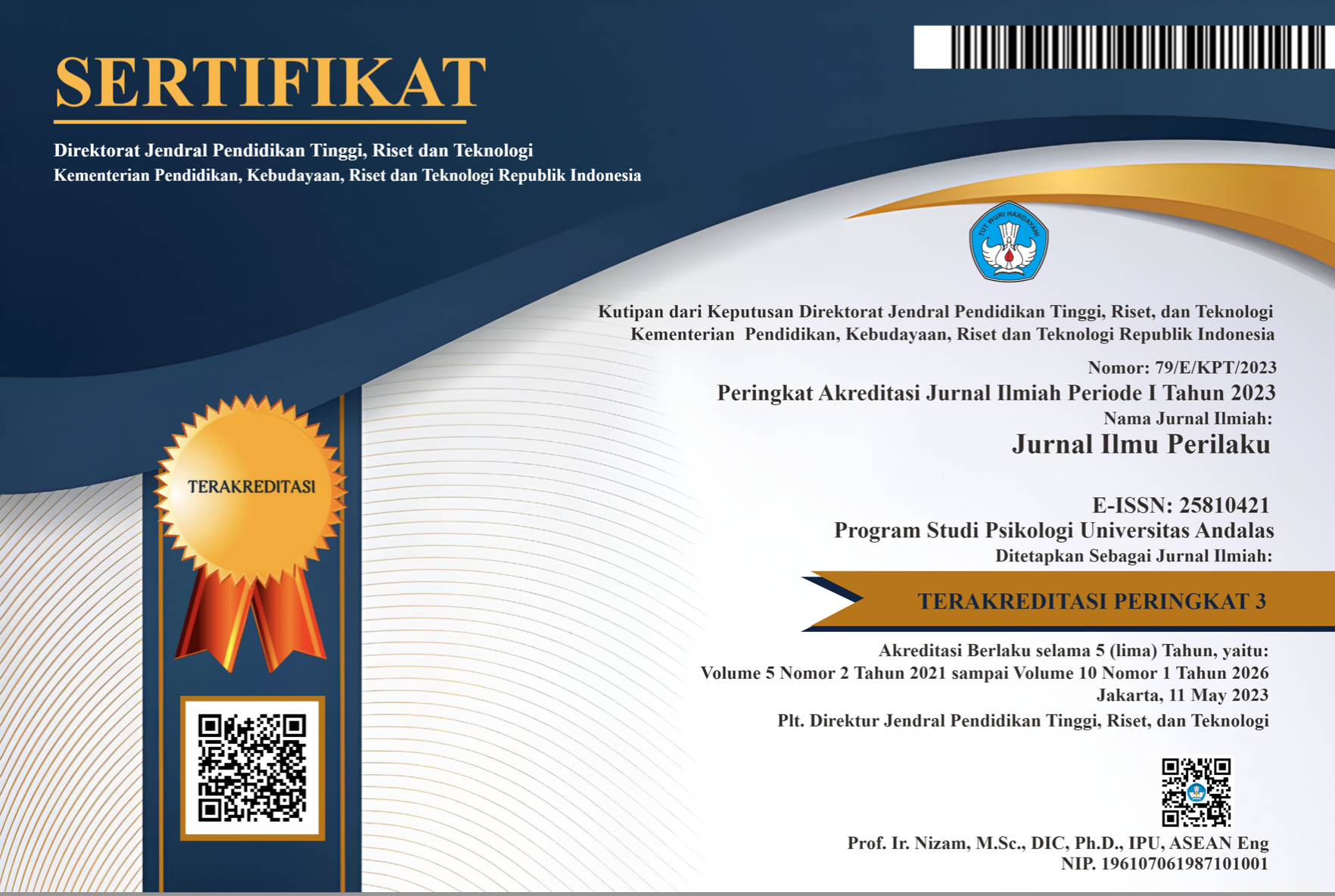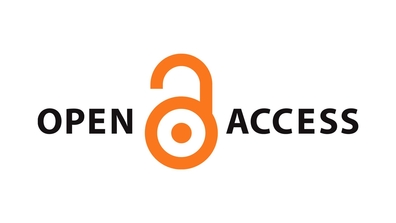Manajemen Stres Berbasis Teknik HeartMath untuk Mengurangi Stres dan Mengelola Emosi pada Caregiver Pasien Penyakit Kronis
Abstract
Abstract. This study was the continuance of the prior research of psychological intervention of patiens with type 2 diabetes mellitus. In this study, intervention was given to caregivers who caring of their family members in chronic illness. This consideration was chosen based on many feedbacks from community and health care personnels. This research was conducted as a solution to help caregivers of chronic illness deal with their stressful situation. Caregivers are required to care their family members optimally eventhough they are also vulnerable to stress. Based on this condition, the purpose of this research is to test the effectiveness of stress management to reduce stress level in 20 caregivers used experimental design, one group pretest-posttest design. Data collection used Perceived Stress Scale (PSS) questionnaire by Cohen. Data analysis used paired sample t-test with SPSS 20 showed that there was a significant difference of stress level between before and after stress management intervention. The result revealed that stress management is effective for reducing stress in caregivers.
Keywords: Caregiver; chronic illness; stress management
Downloads
References
Depkes. (2019). Diabetes mellitus dapat dicegah. Diakses pada tanggal 11 Desember 2019 dari www.depkes.go.id.
Duggleby, W., Holtslander, L., Kylma, J., Hammond, C., & Williams, A. (2010). Metasynthesis of the hope experience of family caregivers of persons with chronic illness. Qualitative Health Research, 20, 148–158.
Foundation, B. F. (2015). Managing stress: Care for the caregiver. Clarksburg: Bright Focus Foundation.
Greenberg, J.S. (2011). Comprehensive stress management 12th edition. New York: McGraw-Hll Inc.
Greenberg, M. (2017). The stress-proof: Master your emotional response to stress using mindfulness & neuroplasticity. Oakland: New Harbinger Publications, Inc.
HearthMath. (2017). Family caregiver’s guide to coping with stress. Washington, DC: HearthMath, LLC.
Li, J., Riedel, N., Barrech, A., Herr, R. M., Aust, B., Mörtl, K., Siegrist, J., Gündel, H., & Angerer, P. (2017). Long-term effectiveness of a stress management intervention at work: A 9-year follow-up study based on a randomized wait-list controlled trial in male managers. BioMed Research International, 1, 24–35, https://doi.org/10.1155/2017/2853813
Lupien, S. (2012). Well stressed: Manage stress before it turns toxic. Ontario: John Wiley & Sons Ccanada, Ltd.
Mada, S., & Pakenham, K. I. (2014). The stress-buffering effects of hope on adjustment to multiple sclerosis. Journal of Behavioral & Medical, 21, 877–890.
Martin, G. G. (2012). Stress management for social workers. UK: My Work Place Wellbeing.
Newby, K., Bayley, J., & Wallace, L. M. (2011). Coping with chronic illness for caregiver. Journal of Health Promotion Practice, 12, 209–228.
Oladinrin, T.O., Adeniyi, O., & Udi, M.O. (2014). Analysis of stress management among professionals in the Nigerian construction industry. International Journal of Multidisciplinary and Curent Research, 1, 22-33.
Pattison, N.A., & Lee, C. (2011). Hope against hope in cancer at the end of life. Journal of Religious Health, 50, 731–742.
Sosialita, T.D. (2019). Hope-based intervention untuk menurunkan stres serta meningkatkan harapan dan subjective well-being pada penderita diabetes mellitus tipe 2. Psikoislamika, 12(1), 55–63.
Sosialita, T.D. (2020). Online Counseling to Improve Mental Health among Midwives. Proyeksi: Jurnal Psikologi, 14(2), 94–103. https://doi.org/10.30659/jp.14.2.94-103
Vieth, A.Z., Hagglund, K.J., Clay, D.L., Frank, R.G., Thayer J.F., Johnson, J.C., & Goldstein, D. E. (2012). The contribution of hope and affectivity to diabetes-related disability. An exploratory studi. Journal of Clinical Psychology in Medical Setting, 4, 65–77.
WHO. (2020, Januari). Chronic illness task force. Diakses pada tanggal 08 Februari 2020 dari http://www.who.Int/mediacentre/factsheets/Fs311/en/.
WHO. (2020, Januari). Diabetes mellitus. Diakses pada tanggal 08 Februari 2020 dari http://www.who.int/topics/diabetes/en.
The non-commercial use of the article is governed by the Creative Commons Attribution license as currently displayed on Creative Commons Attribution-NonCommercial-ShareAlike 4.0 International License.
JIP's spirit is to disseminate articles published are as free as possible. Under the Creative Commons license, JIP permits users to copy, distribute, display, and perform the work for non-commercial purposes only. Users will also need to attribute authors and JIP on distributing works in the journal.
Please find the rights and licenses in Jurnal Ilmu Perilaku (JIP).
- License
The non-commercial use of the article will be governed by the Creative Commons Attribution license as currently displayed on Creative Commons Attribution-NonCommercial-ShareAlike 4.0 International License.
- Author’s Warranties
The author warrants that the article is original, written by stated author(s), has not been published before, contains no unlawful statements, does not infringe the rights of others, is subject to copyright that is vested exclusively in the author and free of any third party rights, and that any necessary written permissions to quote from other sources have been obtained by the author(s).
- User Rights
JIP's spirit is to disseminate articles published are as free as possible. Under the Creative Commons license, JIP permits users to copy, distribute, display, and perform the work for non-commercial purposes only. Users will also need to attribute authors and JIP on distributing works in the journal.
- Rights of Authors
Authors retain the following rights:
- Copyright, and other proprietary rights relating to the article, such as patent rights,
- The right to use the substance of the article in future own works, including lectures and books,
- The right to reproduce the article for own purposes, provided the copies are not offered for sale,
- The right to self-archive the article.
- Co-Authorship
If the article was jointly prepared by other authors, the signatory of this form warrants that he/she has been authorized by all co-authors to sign this agreement on their behalf, and agrees to inform his/her co-authors of the terms of this agreement.
- Termination
This agreement can be terminated by the author or JIP upon two months’ notice where the other party has materially breached this agreement and failed to remedy such breach within a month of being given the terminating party’s notice requesting such breach to be remedied. No breach or violation of this agreement will cause this agreement or any license granted in it to terminate automatically or affect the definition of JIP.
- Royalties
This agreement entitles the author to no royalties or other fees. To such extent as legally permissible, the author waives his or her right to collect royalties relative to the article in respect of any use of the article by JIP or its sublicensee.
- Miscellaneous
JIP will publish the article (or have it published) in the journal if the article’s editorial process is successfully completed and JIP or its sublicensee has become obligated to have the article published. JIP may conform the article to a style of punctuation, spelling, capitalization, referencing and usage that it deems appropriate. The author acknowledges that the article may be published so that it will be publicly accessible and such access will be free of charge for the readers.










